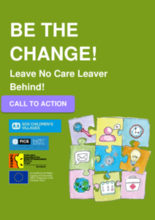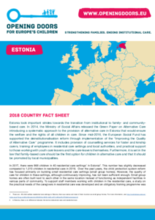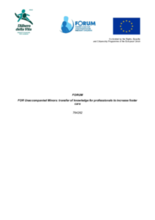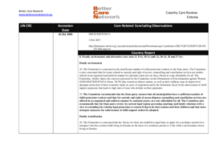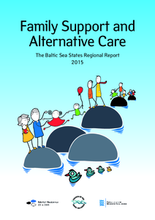Displaying 11 - 20 of 24
The purpose of this webinar is to shed light on the specific experiences and issues of unaccompanied and separate girls in the European Response.
The 7th Conference of the International Society for Child Indicators will be held on 27-29 August 2019 in the Dorpat Convention Centre in Tartu, Estonia. The conference will be hosted by the University of Tartu.
The content of this Call to Action comes from what was heard from young people with care experience as well as from the professionals working with them. It outlines three primary actions to realize careleavers' rights in the law and in practice and to allocate adequate funds for realizing these rights.
In this article, the authors provide children’s insights into their own life experiences and individual identities. The data was collected during an ethnographic research in one of Estonia’s SOS Children’s Villages (SOS CV).
This factsheet highlights the developments and challenges still ahead in Estonia and offers key recommendations to the EU and the national government to ensure that children are cared for in family-based settings.
This article is written as part of the FORUM project (FOR Unaccompanied Minors: transfer of knowledge for professionals to increase foster care), an EU funded project which sought to enhance the capacity of professionals to provide quality foster care for unaccompanied migrant children, primarily through the transfer of knowledge. The article aims to contribute to this transfer of knowledge by bringing together literature which is of relevance to professionals developing or enhancing foster care services for unaccompanied migrant children.
The 2017 country factsheets provide an update on the status of child protection and care reforms from 16 European countries that are the focus of Opening Doors for Europe’s Children campaign in Phase II.
The Committee's recommendations on the issues relevant to children's care are highlighted, as well as other care-related concluding observations, ratification dates, and links to the Universal Periodic Review and Hague Intercountry Adoption Country Profile.
This article is an attempt to analyse and describe the process of change in child substitute care that has taken place since the re-independence of Estonia in 1991.
This report was developed as part of a mapping study aimed at analysing the situation of alternative care and family support in the Baltic Sea Region, assessing the achievements since the 2005 Ministerial Forum and identifying relevant opportunities and challenges for the future.

